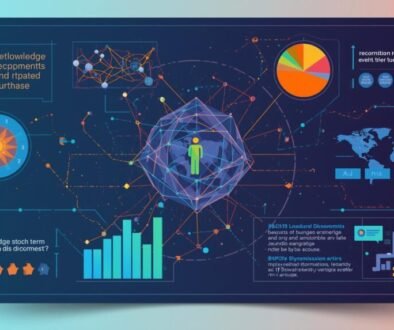SEO: What It Is, How It Works And Why Do It Right Away
Are you wondering but what is SEO? (acronym for Search Engine Optimization) A quick Google search might give you the answer, but it’s not complete.
If you’ve ever asked someone, “What is SEO?”, They probably answered with something like, “It’s a way to make your website popular in search engines . ” This is true, but it’s not very helpful – it doesn’t tell you what SEO actually is or how it works… and it also seems to imply that there is a secret recipe for getting high rankings.
Well, I’m happy to tell you that this is not a magic formula: SEO is the set of processes and activities of optimizing a website.
But what does SEO mean?
Search engines are important because they are one of the primary ways people find information online. The most popular search engine is Google, but there are others like Bing or DuckDuckGo (the latter becoming famous for their fight against user tracking).
A search engine works by indexing all web pages available online and storing them in their databases. This way they can store as much information as possible and view it easily when someone queries (i.e., looking for something).
Yeah, but how to store billions of web pages and store them all at once? In fact it is not possible, no engine can index the web all at once.
Search engines use an indexing system based on algorithms that allow them to store only those pieces of information that seem most relevant to each query performed by users.
In a nutshell, a website may not be stored in search engines, only the useful parts.
SEO meaning
SEO is the branch of Digital Marketing that deals with improving the position of web pages in the organic (non-sponsored) results of search engines.
SEO stands for Search Engine Optimization, a term that has been used for decades and originated around 1997 . It expresses in just three letters a universe of knowledge, activities and processes aimed at indexing and positioning (mainly) websites on search engines.
In other words, it is a set of techniques for optimizing websites so that Google and other search engines can read and understand the content. The goal of SEO , therefore, is for Google to identify you as an authoritative source on that topic and rank higher on the search engine results page or SERP.
What is the search engine and how does it work?
What is a search engine?
A search engine is a program that searches and stores information on the World Wide Web to return it when queried.
To index all web pages and collect information, it uses other software called bots or crawlers . The bots scan the network constantly following the links within the pages, in this way they jump from site to site recovering all the information contained.
The information retrieved is then stored in a huge database and sorted in such a way as to be able to quickly access the data contained therein.
When a user searches for something, the search engine takes the information stored in its database and returns it to the SERP (the search results page) sorted by relevance and importance.
Search engines are composed of a structure of algorithms, a set of programs that filter and evaluate content and domains.
And all of this happens at the speed of light! Let’s take a closer look at Google’s most important algorithms.
Watch out for Google algorithms, here are the most important
Keeping an eye on Google’s ranking algorithms is one of the most important aspects of search engine optimization (SEO). The algorithm determines which pages appear on the first page of results and how they rank for certain keywords.
Google’s search algorithm is constantly changing to provide users with the best possible experience. Search engine optimization professionals follow these changes so they can outperform or stay ahead of the competition.
Here are some of Google’s most popular algorithms:
Panda : Born in 2011, this update targets content farms, sites that generate low-quality content with the sole purpose of gaining more traffic and clicks.
Penguin : This update targets backlink spammers and those that are manipulative in nature. It was released in 2012 and was updated again in 2014.
Hummingbird : This update has made it easier for users to find answers to their questions using natural language processing (NLP). It also improved Google’s ability to understand queries better than before.
Pigeon : dedicated to local searches, with this algorithm Google returns SERP conn geolocated results even when the search is not geolocated.
Page Rank : The most famous algorithm that ranks sites based on backlinks. A link is the same as a “vote” but be careful, not all votes are the same!
Trust Rank: sold to Google by Yahoo! Increase the effectiveness of page rank.
Mobile Friendly Update : Released in 2015, this update targets mobile-friendly websites when it comes to ranking purposes – especially those aimed at mobile devices such as smartphones and tablets.
Rank Brain : perfects Google’s artificial intelligence thanks to semantics and bounce rate, in this way it understands if the content is relevant or not and if it is of quality.
Caffeine : Basically it is an accelerator to catalog content on the web. All to provide always fresh and updated results.



